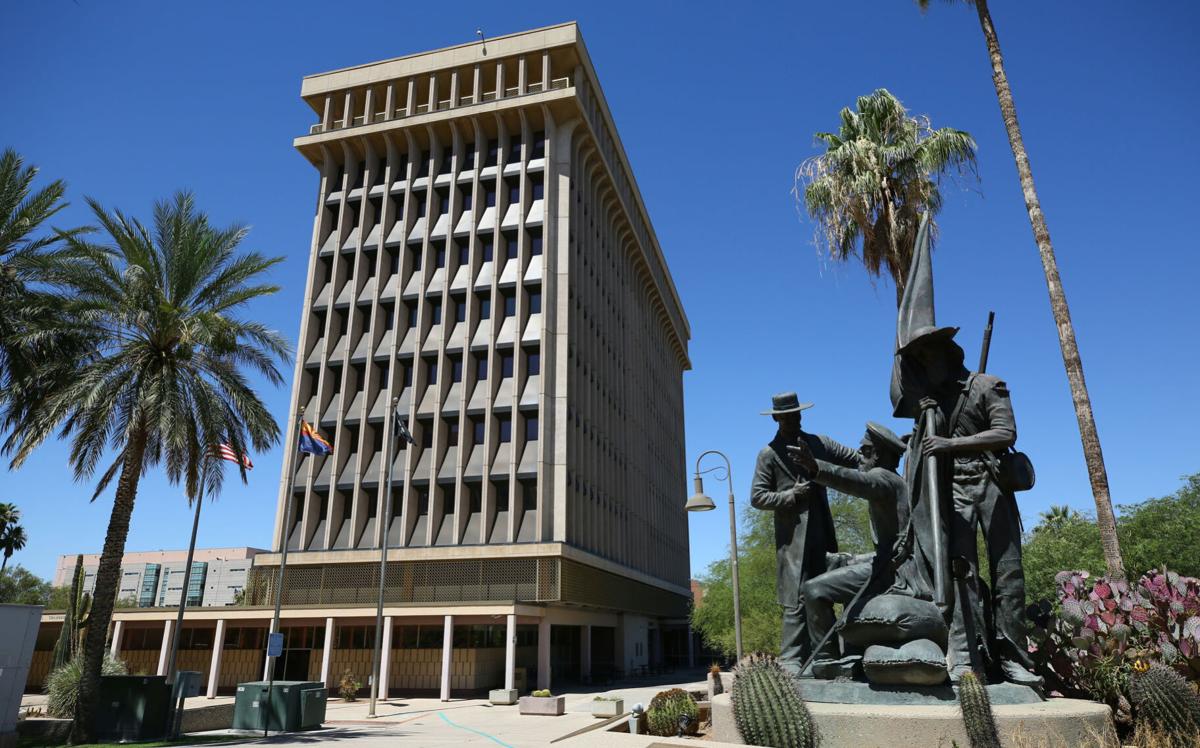Tucson voters could be asked to approve a half-cent sales tax next spring.
The city council on Tuesday will consider moving forward with a proposal to raise the sales tax to 9.2%. On Tuesday, the council is set to decide whether to schedule a vote on the measure at its Sept. 11 meeting and put it before voters in a March 2025 election.
The council has to decide by its Sept. 11 meeting to statutory deadlines for such an election, Tim Thomure, the city manager said in a memo. Raising the city’s sales tax to 9.2% is projected to raise about $80 million a year, the memo says. The higher tax rate would last 10 years.
Arizona’s base sales tax is 5.6%. Pima County’s adds 0.5% more for the Regional Transportation Authority. Tucson currently has a 2.6% sales tax.
Called the “Safe & Vibrant City” ballot measure, the additional sales tax would be split between five areas deemed “quality-of-life” categories, the city says.
They are:
- Money for first responders: $24.6 million mostly for police cars, fire trucks and assorted equipment: 30.75%
- Enhanced emergency response: $18.2 million mostly to hire more police officers, firefighters and 911 operators: 22.75%
- Affordable housing and shelter, $14 million mostly for assorted assistance programs for homeowners and renters: 17.5%
- Neighborhood and community resilience, $13.4 million mostly for workforce development, neighborhood improvements and early childhood programs: 16.75%
- Technology investments, $9.8 million for police body cameras, radios and a more modern air unit: 12.25%
City staff, as part of information included for Tuesday’s meeting, prepared a presentation of an example tax revenue budget and what will be funded through each of the five “vital areas.”
The tax is necessary, the city manager’s memo says, because of laws enacted by the state legislature that “have reduced local control and created financial challenges for cities” like Tucson.
The Legislature’s approval of a 2.5% “flat tax” signed by former Gov. Doug Ducey in 2022, “has significantly reduced statewide tax collection” and state-shared revenues cities like Tucson relied on, the memo says.
Mayor Regina Romero, in a guest opinion published today on the Star’s editorial pages, describes a “dire” situation the city faces due to the state’s flat tax. It will result in a $27.4 million cut in the city’s state-shared revenues within the current budget year, Romero says.
“To put this massive cut into perspective, a $27.4 million cut could result in a 20% reduction to the city’s housing department operations,” she writes. “A cut of this magnitude equates to taking 168 Tucson firefighters, with all of their apparatus and personal protective equipment, or 100 Tucson police officers, including their patrol vehicles and personal protective equipment off the streets.”
Imposing the flat tax, Romero says, led to a $1.3 billion deficit at the state level for this fiscal year and has “necessitated” the city council to prioritize its recently adopted budget “at the expense of any potential new spending on additional housing needs, community safety service, investments in our parks or our roads and infrastructure.”
Because of the state flat tax and decreases in other state-shared tax revenue streams, the city is projecting “additional reductions in state-shared revenues” over the next two fiscal years and “a nearly $400 million loss in state-shared revenues over the next 10 fiscal years” in-all, Thomure said in his memo.
“Additionally, the state legislature’s ban on cities levying taxes on residential rentals will reduce revenue by $230 million for 75 Arizona cities and towns starting January 2025,” the memo says. “While Tucson does not levy a residential rental tax and will not be directly affected by this cut, we anticipate that all Arizona cities and towns will seek relief from state lawmakers unless reforms are made to the state-shared revenue formulas.”
Councilmember Kevin Dahl told the Star on Friday that he sees the possible sales tax as a “transferring” of what should already be coming from the state.
Dahl said his personal philosophy is that he’s fine with paying more in taxes “as long as you’re getting good value for your taxes.” Dahl said he hopes Tucson residents will feel the same way about the proposed sales tax increase “when they see what you’re going to get.”
“It’s a whole package. You’re going to get a lot (for) safety, and not just essential new equipment, but for also more community safety officers who can respond and help people in nonviolent situations that don’t involve arresting,” he said. “Folks who can do the paperwork and support the police to free them up to do that work. It includes the safety navigators and housing navigators for people who are vulnerable, more money for preschool stuff ... It’s a wonderful investment (and) I think we’ll be successful in making that argument when we take it to voters.”





